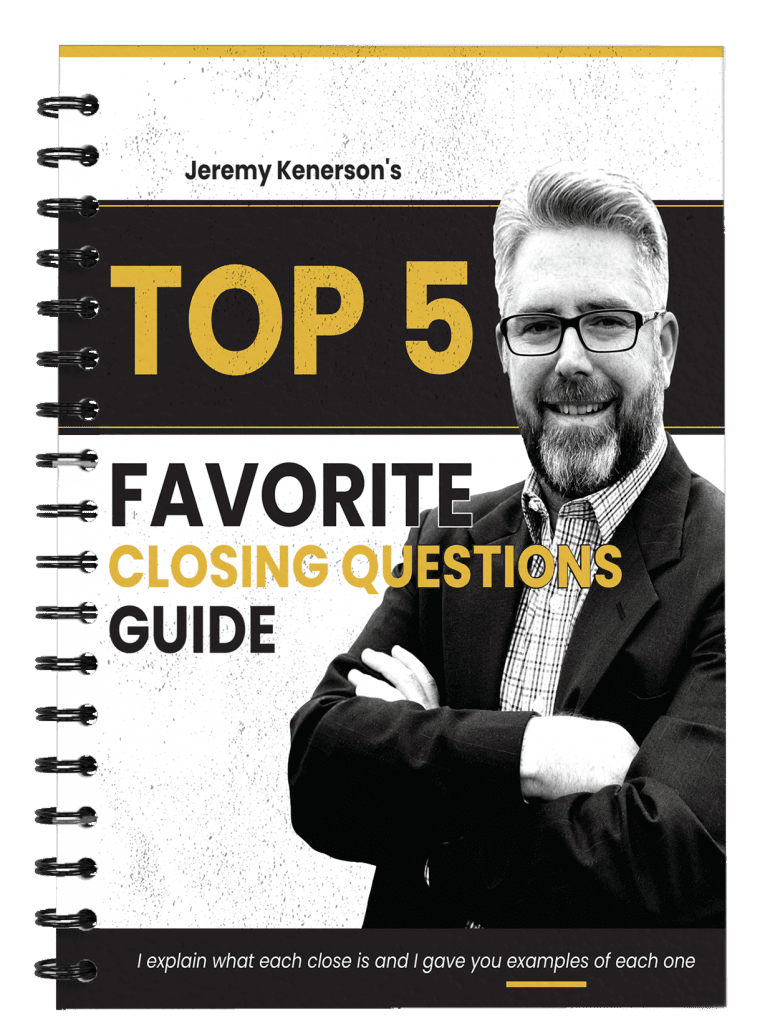The most critical tasks in your business are those that are income producing activities. If you are not making money, it is hard to stay in business.
((Listen to the Podcast below))
What Holds You Back from Doing Income Producing Activities?
I am very passionate about helping entrepreneurs with sales. I’ve had a career spanning 20 years in sales and have run different sales teams for many various organizations. And I geek out on training people on how to be the best salesperson, all while maintaining your soul.
One thing I hear over and over again working from clients is that they don’t like selling. They tell me things like:
- It makes me feel slimy.
- I feel like I’m manipulating people.
- People won’t like me.
Or maybe you just don’t think you are good at sales. But you can learn how to be good at sales. It’s all about keeping your own voice and maintaining your soul because you can SELL WITHOUT SELLING. That’s the process that I teach.
Art and Science of Sales
The science of sales is your will, and the art of sales is a skill. I’ve trained salespeople with many different types of personalities and character traits.
I found that people who have a natural ability to talk and sell usually were not my top performers. This is because it was tough to teach them anything. They thought that they were too good and didn’t need to take any advice.
The person that didn’t know anything about selling or felt very uncomfortable was my highest performing sales rep. You can learn sales skills, but I can’t teach you to have the will or drive to do what it takes to succeed in your business.
I hope that if you’re running your own business, you already have the motivation. If you don’t have the skill, your will can actually get you results now.
The 80-20 Rule With Money Making Tasks
A lot of times, we end up not doing the things that we don’t like. Revenue producing activities almost always involves other people. It involves us feeling uncomfortable.
Then we create all these admin tasks and checklists. I get it; it feels good to check off things. But it’s twenty things that aren’t helping you make money today.
You should spend eighty percent of your time each day doing revenue producing tasks. Then, spend the other twenty percent doing administrative tasks.
Make a List
Make a list of all the tasks you need to get done in your business daily, weekly, and monthly. If it’s not income-producing, you need to take a second look at why you are doing it?
If it isn’t revenue producing and doesn’t require your specific expertise, you don’t need to waste your time on it.
Prioritize and reorganize your day with the most important tasks first. You can postpone, delegate, put off, or just not do everything else.
Goal Setting
The next thing is goal setting. Goal setting is crucial because you need to understand the steps required to reverse engineer your goal.
Sales is a Numbers Game
Sales is a numbers game. Ten percent will be ready to buy out of a hundred people that show interest in your product or service. They’ve already done the research. They already know what they want and don’t want. And they have just been waiting for that perfect thing to say yes to.
A Car Salesman Example
Think about when you go car shopping. How many times do you go to the dealership when you’re still kind of checking it out?
You’re like six months out and want to get a feel for what you like. You want to look at many different cars, but you aren’t ready for the whole sales conversation.
Pretty much 90 percent of the people that come to that car salesman during the day are tire kickers. They’re just checking stuff out they don’t play to buy yet.
People buy when they want to buy, not when you’re ready to sell them. So what you want to do is find the people that are ready to buy now.
Reverse Engineering Your Goals
First, you need to know your conversion rate? If you have one hundred people each month, you can close ten percent without having any sales skills. If you want ten deals a month but are only getting fifty leads, you will need to increase your skill level. So how many people do you need to speak to to get a sale?
Second, let’s break down your goal. If you want to make a hundred thousand dollars a year, that is eight thousand dollars a month. How many deals do you need to get to make eight thousand dollars a month?
Next, how many deals do you need to get per week to get those deals? Say it is twenty deals a week. That is one deal per day for five days.
Next, how many appointments do you need each day to make sure you close one? You will need three appointments and three closing calls a day to get one of them to say yes each day.
So before you get done with your eighty percent of income producing activities for the day, you need to have three appointments.
Lastly, how many phone calls do you need to make to get three appointments? This could be fifty or a hundred. You will need to figure that part out on your own. Once you have that number, you will know what your goal is for each day.
Motivation to Reach Your Goal
Making one hundred phone calls a day can seem overwhelming. The only thing that gets me over this is to look at what motivates me to reach my goal.
My motivation is my kids. I need to hit this goal so that I could spend more time with my kids and take them on vacations to create more memories so that they can grow up and live a better life than what I had when I was growing up.
It is just as important to figure out what will keep you motivated in reaching your goal.
Time Management
Do you stop what you are doing when you get a phone call or social media notification? This is allowing those notifications to dictate your time.
If you are not managing your time, your time is managing you. You can’t buy more time; once it is gone, you can’t get it back. What I have found to be the best use of my time is time blocking.
Time blocking makes what time you have to work more efficient. You stay on one focused task for an allotted amount of time, then move onto a new focus.
I allot different parts of the day to specific tasks. Like on Monday, I have a block of time for emails and messages. Then I have a block of time for picking up the phone and prospecting.
I can literally stop going through my emails when the time is up because my emails will be there tomorrow. They’re not going to go anywhere. I’m not expecting a response right now. And if there’s a fire in my business, they won’t contact me by email.
I’m not telling you in time blocking has to be 100 percent this way or nothing. But it needs to be like ninety percent versus ten percent. Otherwise, you end up not respecting your time, and you end up wasting your time.
Follow Up
What about the other 90 percent of people that are not ready to buy now? You need to have a follow-up system.
Only one percent of deals happen on the first sales conversation. Eight percent occurs on the fifth through twelfth conversation. This is why you want to make sure you are following up with people.
If somebody shows interest in your service or product, they will make a purchasing decision somewhere within the next twelve months. So follow-up is vital.
How do you Follow Up?
You don’t want to be badgering them. You want to do it authentically. There’s a fine line between that and going to the extreme where you are making excuses not to call them, such as it may be dinnertime.
You also don’t want to go so long between follow-ups that the prospect doesn’t even remember you. I use the Speed to Lead follow up strategy.
Speed to Lead
The speed to lead strategy is as soon as you get a lead call them right away. Next, you would send them an email. You would continue alternating these methods to give them twelve touches.
Although, you don’t want to spend all your time deciding to reach out to next. We only have a certain amount of quality decision making that we can do throughout the day.
I don’t know if you have ever noticed by Mark Zuckerberg only wears the same colored t-shirt every day (gray). His closet is full of gray t-shirts because that is one less decision he has to make that day.
So how can you keep doing follow-ups without having to stop and make decisions on who to call? This is where automation comes in.
CRM (Customer Relationship Management)
Most people fail to follow up because they do it manually. It is time-consuming, and if they miss a day or two, they end up with a massive list of people to reach out to. It is overwhelming, so they just don’t do it.
A CRM is a software system that automates your follow up for you. You enter all your prospects, categorize them, create funnels and let the system do the work. The system can tell you who to call that day and send out automatic emails for you.
You can use the CRM to keep notes from calls, save prospects and customer email responses, and keep track of specific information.
Things you may want to track:
- Customer birthdays and anniversaries
- Prospect’s interests in certain products or services
- Family information
- Information on previous orders
Having that follow up automated through a system means you don’t have to keep all this information in your head and rely on your memory. So you have more time for income producing activities.
Check out Convert Ninja, which is both a CRM and a marketing automation system. Not only will you never let a person slip through the cracks, but ConvertNinja will also increase your amount of “touches” per contact automatically, without you lifting a finger.
Referrals
I’m always surprised at how many people don’t ask for referrals. They say they feel awkward about it, so they just don’t do it.
Asking for referrals is an income producing activity. They already know, like, and trust the person that referred you. So referrals close twice as easy.
What if you set those automatic emails in your CRM to automatically ask for referrals? That way, you avoid the awkwardness, and every single customer gets asked.
Networking
The next income producing activity is networking. It doesn’t take any particular skill to network. But if you’re not out and about talking to people, then you’re missing the boat.
Join some clubs, groups, and get out there and talk to people. One group for networking is called BNI. There are also a ton of Facebooks to network in.
And you can time block networking. Put it in your calendar, and then do it. That simple. It’s not hard.
Next Step Selling
And then, the next income producing activity is always to be asking for the next step. When you are having a conversation with someone, never leave without talking about the next step.
This will let them know you will be following up with them and what you will be talking about.
Always try to set an appointment with an actual date on the calendar. That is better than just saying you will call them in two weeks.
The Conversations
Eighty percent of the time, your prospect should be doing the talking. You only need to be talking twenty percent of the time. I know for many, that will be hard.
You would think that you need to give them all the information they need to make an educated purchasing decision about your product or service. This is not the case if you want to close a sale.
You want to ask questions that spark conversation. Instead of going through an interrogation list of questions, ask these broad open-ended questions and take notes.
What Questions to Ask
- What they want
- What they’re looking for
- What they don’t like
- The pains that they’re experiencing
- Obstacles to them reaching their goals
Then you keep digging by saying:
- “Oh really? Tell me more about that.”
- “Yeah, why is that?”
This will spark more conversation. Because if you get your prospect to talk, they will give you all the information you need. They will end up telling you exactly how to sell to them, how not to sell to them, and how to overcome their objections.
Build Rapport
You don’t want to start a conversation and immediately ask if they are married or how many kids they have. Instead, as they are talking, listen for things that allow you to get relatable.
Building rapport creates the trust factor you need when you ask someone to buy something. Not building rapport has you come off as a robot. Just remember to incorporate it into the conversation.
Your Story Outlined Not Scripted
I’m not a big fan of sales scripts. We just don’t all talk the same. Also, scripts don’t lead to an authentic conversation of asking them questions to get them to talk most of the time.
Conversations can go a hundred different ways while you are scrambling to figure out how to add in the next part of the script you are not listening. Then they will think it is weird when you ask random questions that don’t relate to what they just told you.
When you are listening you’re not thinking about the next thing to say.
Although, I do suggest that you outline your story. You want to take your story to show them the easiest path to achieving their goal. You want to help them avoid the mistakes you made.
Ask Yourself These Questions to Create Your Story
- How did you get to where you are?
- Why do you do what you do?
- Why do you like what you do?
- What obstacles did you face?
- What things were you able to overcome?
- What things did you discover to make what you’re doing easier
And remember this little caveat, if what you have does not benefit the prospect, cut it off. Don’t try to sell them something that’s not going to help them.
When to Use Scripts?
There are certain things that you do over and over again that you can use a script instead.
Use a Script to leave a message on someone’s voicemail. You can test this out. If the one you are leaving isn’t working after a couple of weeks, try a new one.
You can also use scripts for closing questions, so the transition isn’t awkward. Writing out scripts for closing questions will give you more confidence in closing the sale.
Then memorize these so it will be second nature in your conversations. Your prospect is more apt to buy when they hear the passion in your voice about your product or service. When you are stumbling around with your words, it makes them feel uneasy about the product or service.
Outline Your Conversation
Better than a sales script is an outline for your conversation. Think about things such as:
- What are the things that you know you need to be talking about in the conversation?
- Is there a flow to the questions you ask?
- Are those questions helping overcome objections later?
With an outline, you can keep having that authentic conversation but not forget the questions you wanted to ask them.
Additional Resources Incoming Producing Activities
When you start each day, do the business tasks that will produce you money first. If you are not making money, you won’t be able to stay in business long. What task is the one you do first thing each day in your business? Drop it in the comments below.
Here are additional resources to level up your business:
- How to Become a High Ticket Closer
- Close the Sale with this 4-Step Sales Process
- Overcoming Objections
- How to Increase Sales
- How to Have a Positive Mindset in Sales When Life Sucks
Watch the Youtube video where I go into greater detail with examples:















